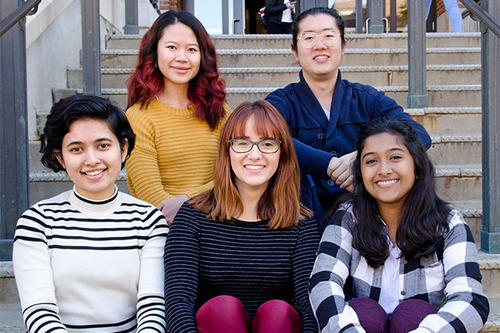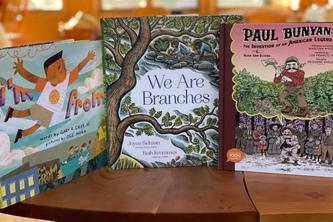
Students who are encountering unfamiliar academic situations, especially in research areas, are turning to online appointments with University of Minnesota Libraries’ Peer Research Consultants (PRCs).
PRCs are U of M students with strong academic records and writing skills, trained to help other students with research papers and assignments.
Lately, demand for PRCs has been spiking, and the program has even begun serving Minnesotan high school students looking for research help.
During fall semester 2019, there were 140 PRCs in more than 50 subject areas. Because of Minnesota’s stay-at-home order, so far this spring PRCs have been about three times busier than in the same period last year, says Andrew Palahniuk, program lead.
“This really couldn't have happened under our old model, because we only offered consultations in-person on campus,” says Palahniuk. “Now we have extended to high school students who can really benefit from research help.”
Some students access PRC help through the U of M’s College in the Schools (CIS) program, where high school juniors and seniors can earn college credits by taking U of M courses.
Recently Woodbury, MN, teacher Karen Morrill and her 42 CIS students took advantage of the assistance. Morrill says that statistics show that students who use library resources—such as consultations with PRCs—are much more likely to succeed.
“It makes so much sense for them to get fantastic help from the experts who have a system in place to help students just like them,” says Morrill. “The last few weeks have been the most challenging I have ever faced as a teacher. I really appreciate how wonderful the U of M is to work with.”
Ananya Muralidharan and Jessica Ni are PRCss this academic year.
During a recent Google hangout, Ni, a junior studying physics, astrophysics, and computer science, had a Woodbury high-school student visit U of M Libraries’ “Opposing Viewpoints in Context” resource, which highlights various differing positions on current issues.
Muralidharan, a junior majoring in music therapy and minoring in neuroscience, has found that she enjoys working with high school students.
“It’s kind of fun to see—it’s very different,” she says.
She begins each consultation by having students narrow down what they’re passionate about.
“Helping students actually find what they’re looking for is satisfying because I used to struggle with that,” says Muralidharan.
Morrill remains grateful for the assistance.
“It is challenging [with] the school shut down order,” she says. We [teachers] are doing the impossible…. This has opened up creative ways I can engage my students.”
- Categories:
- Arts and Humanities
- COVID-19





